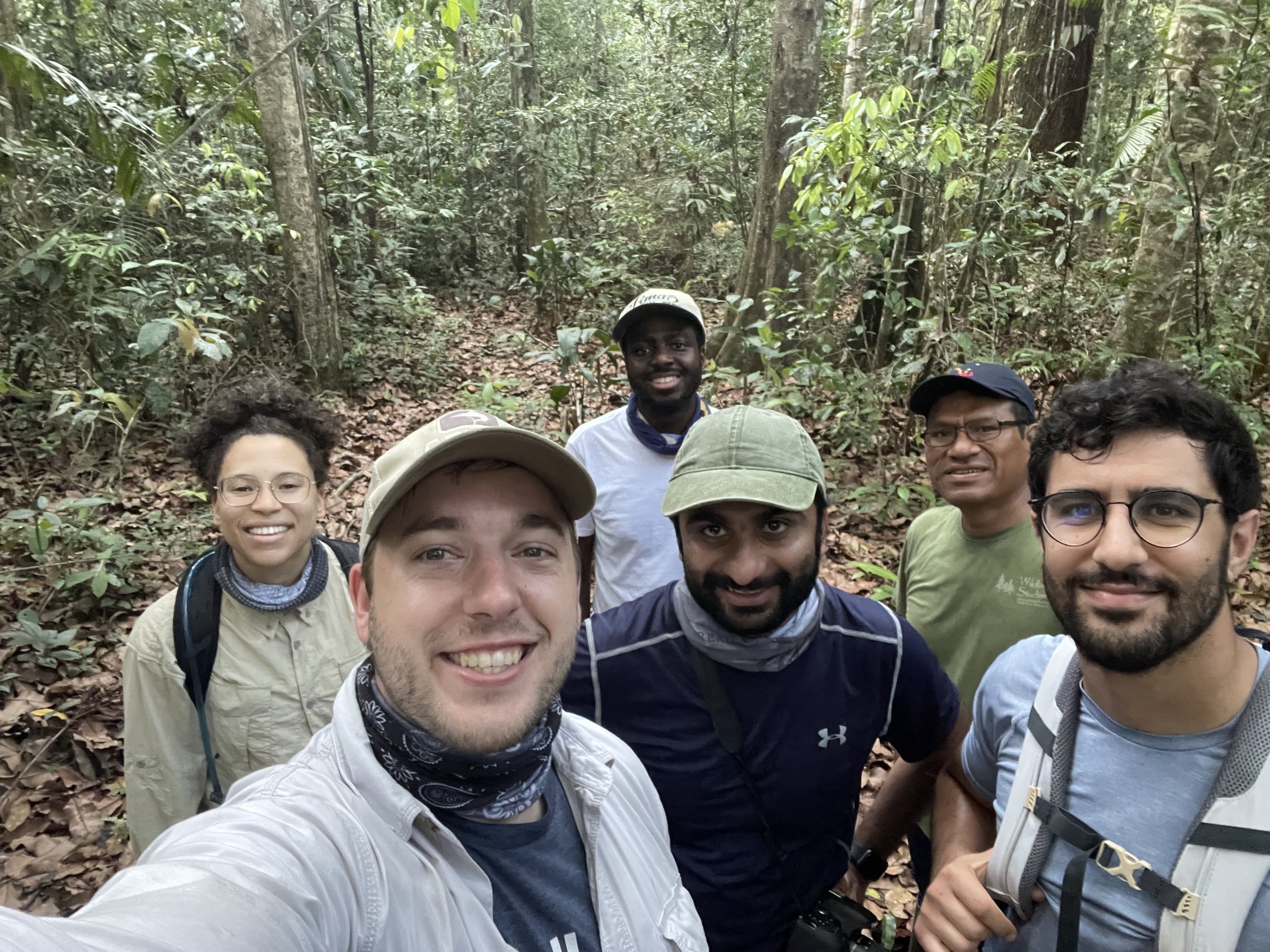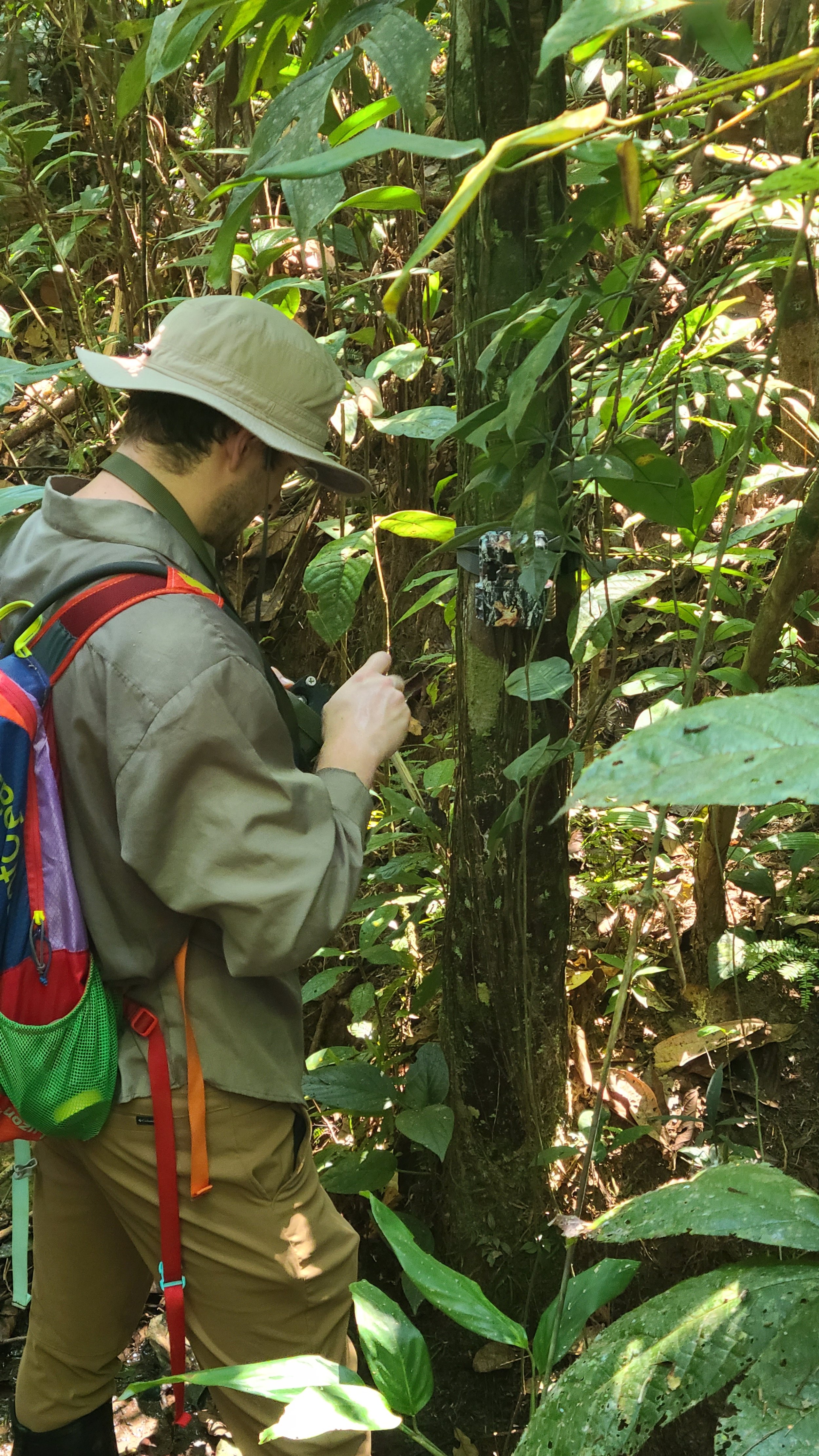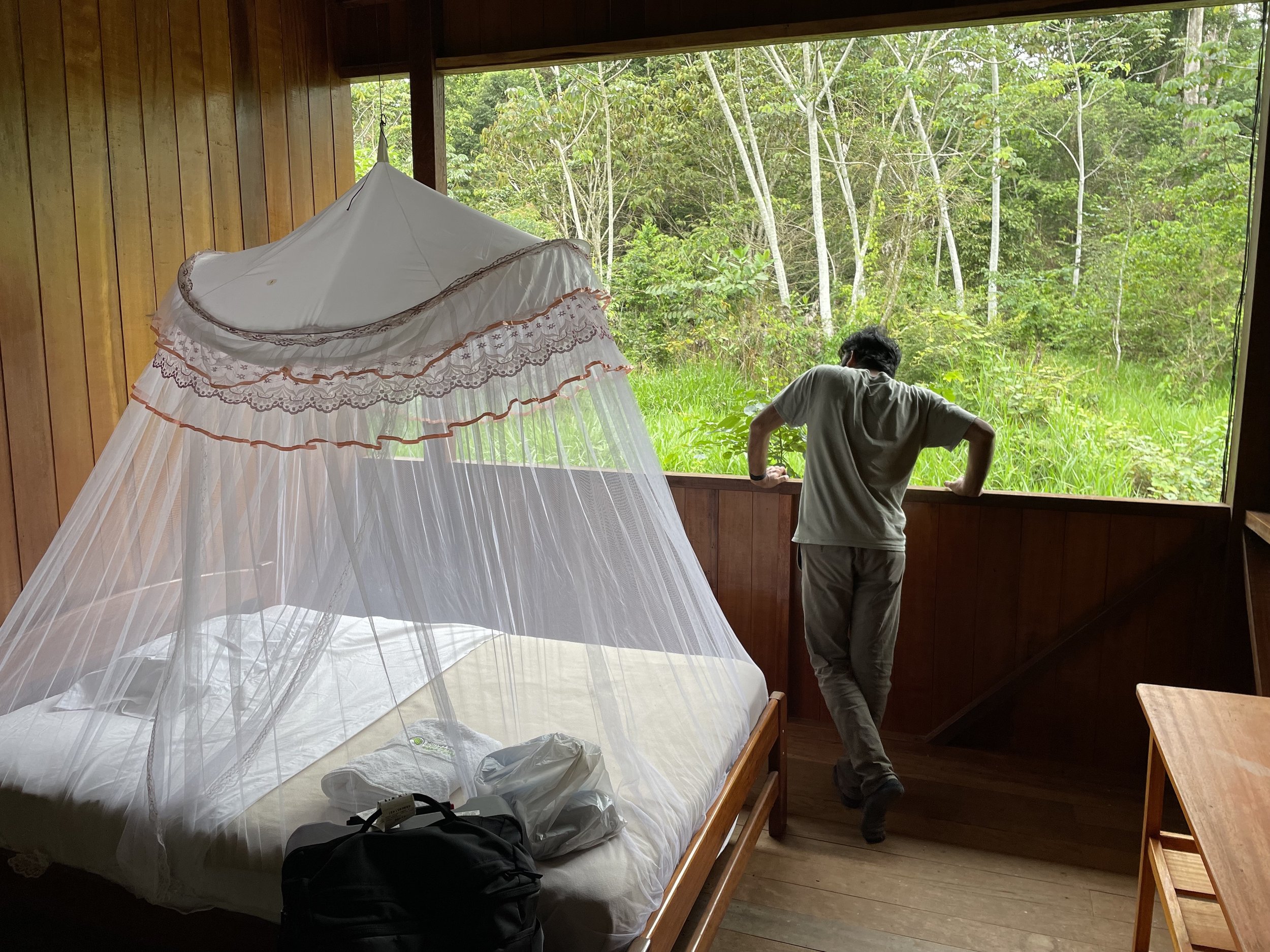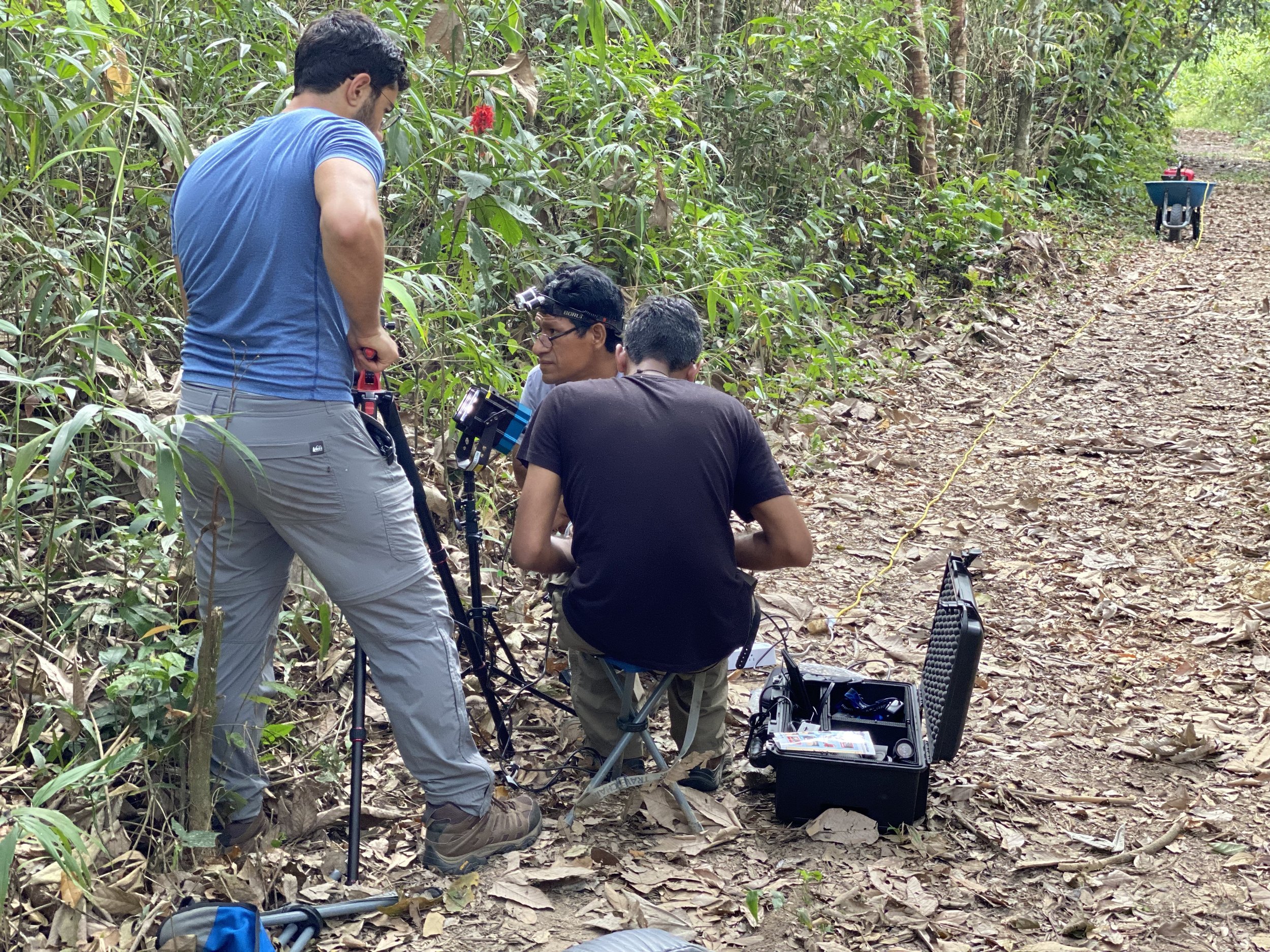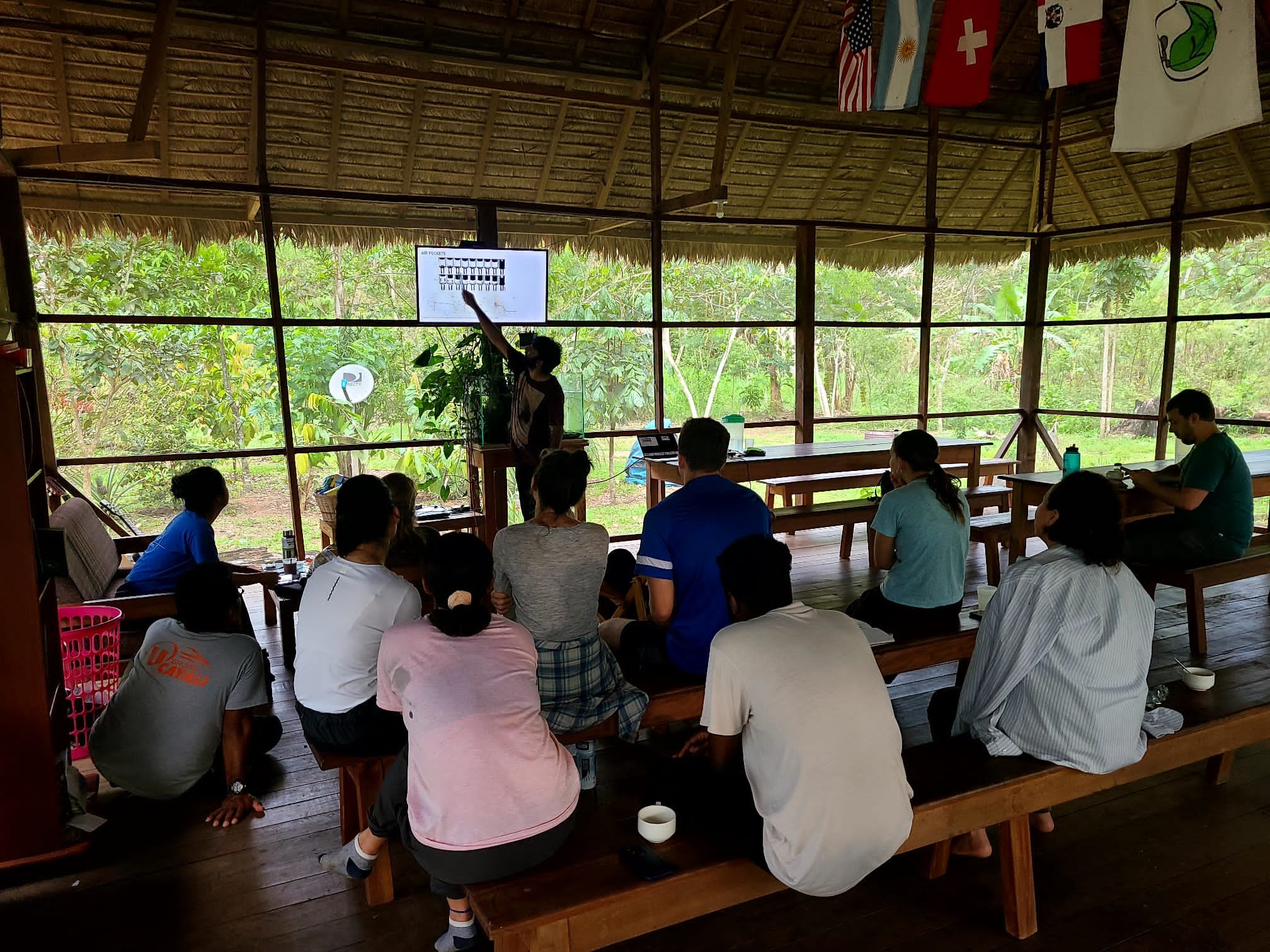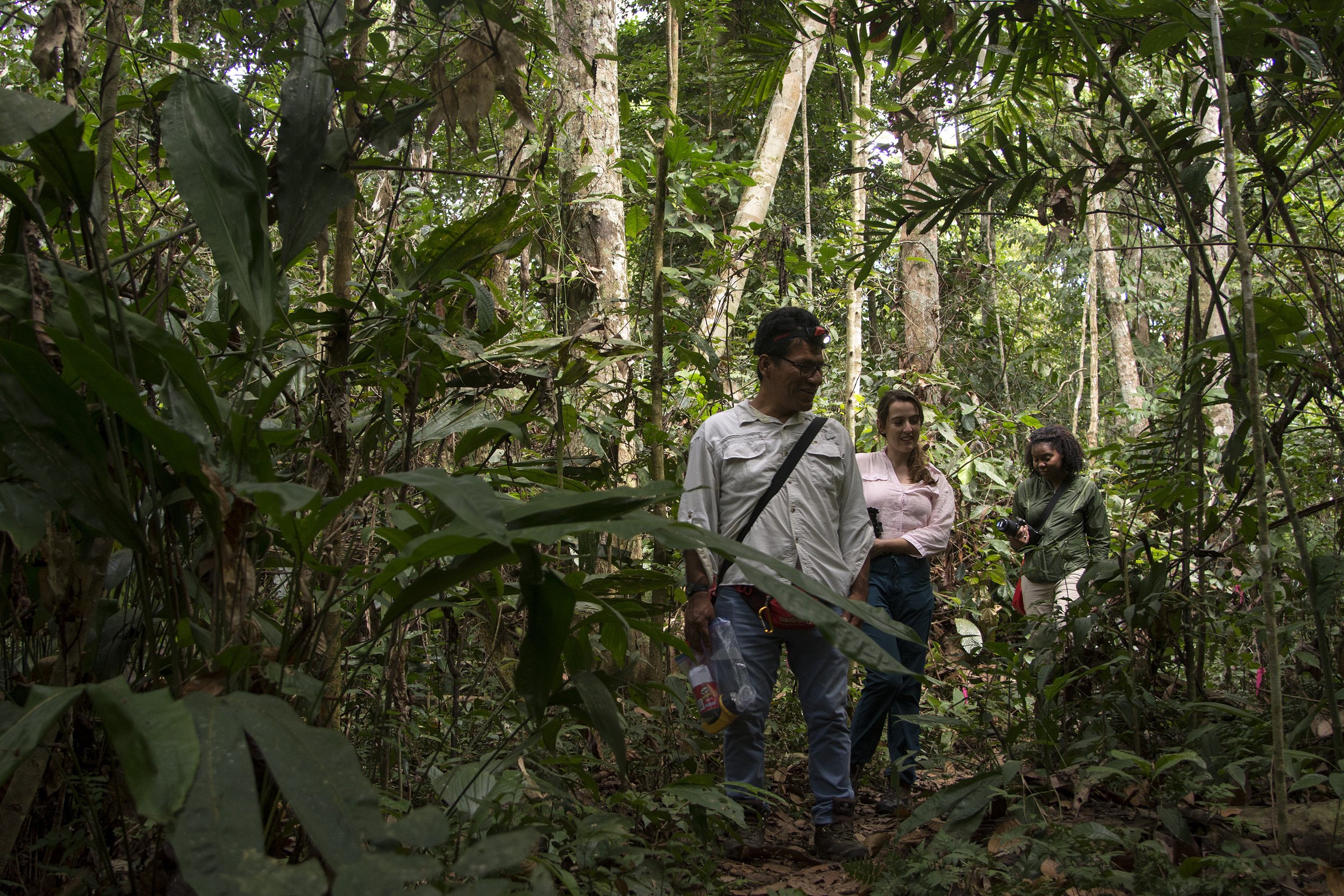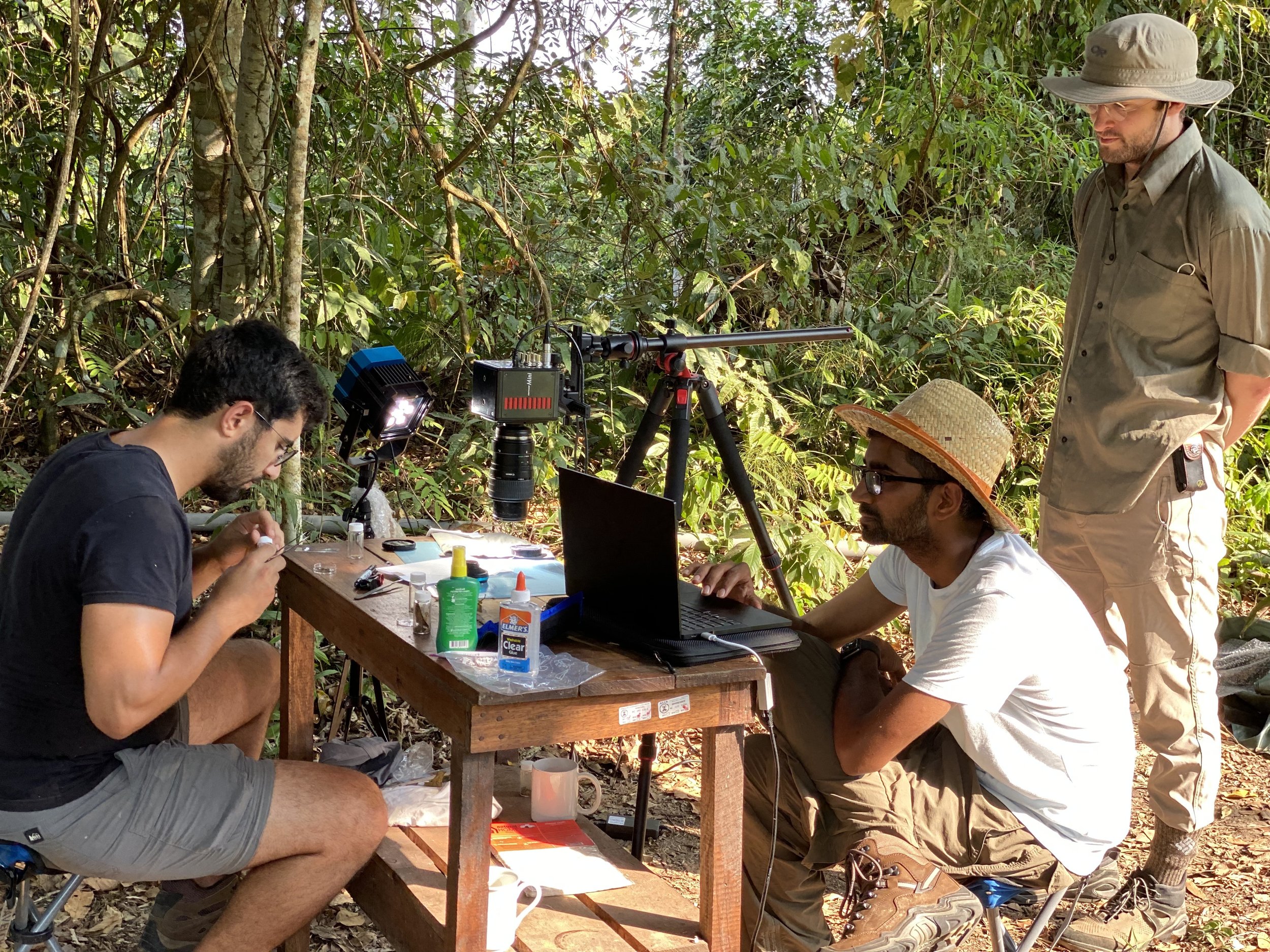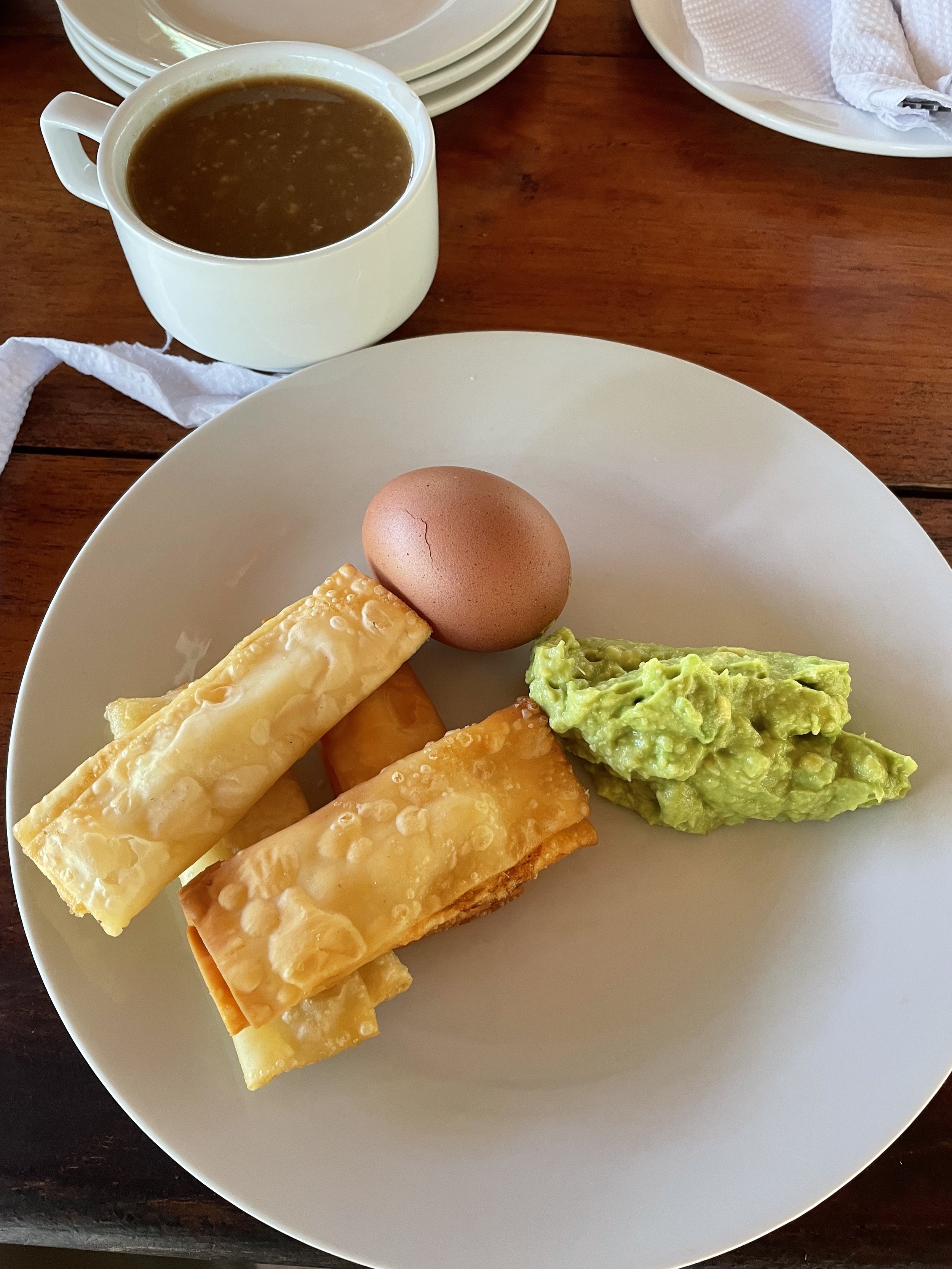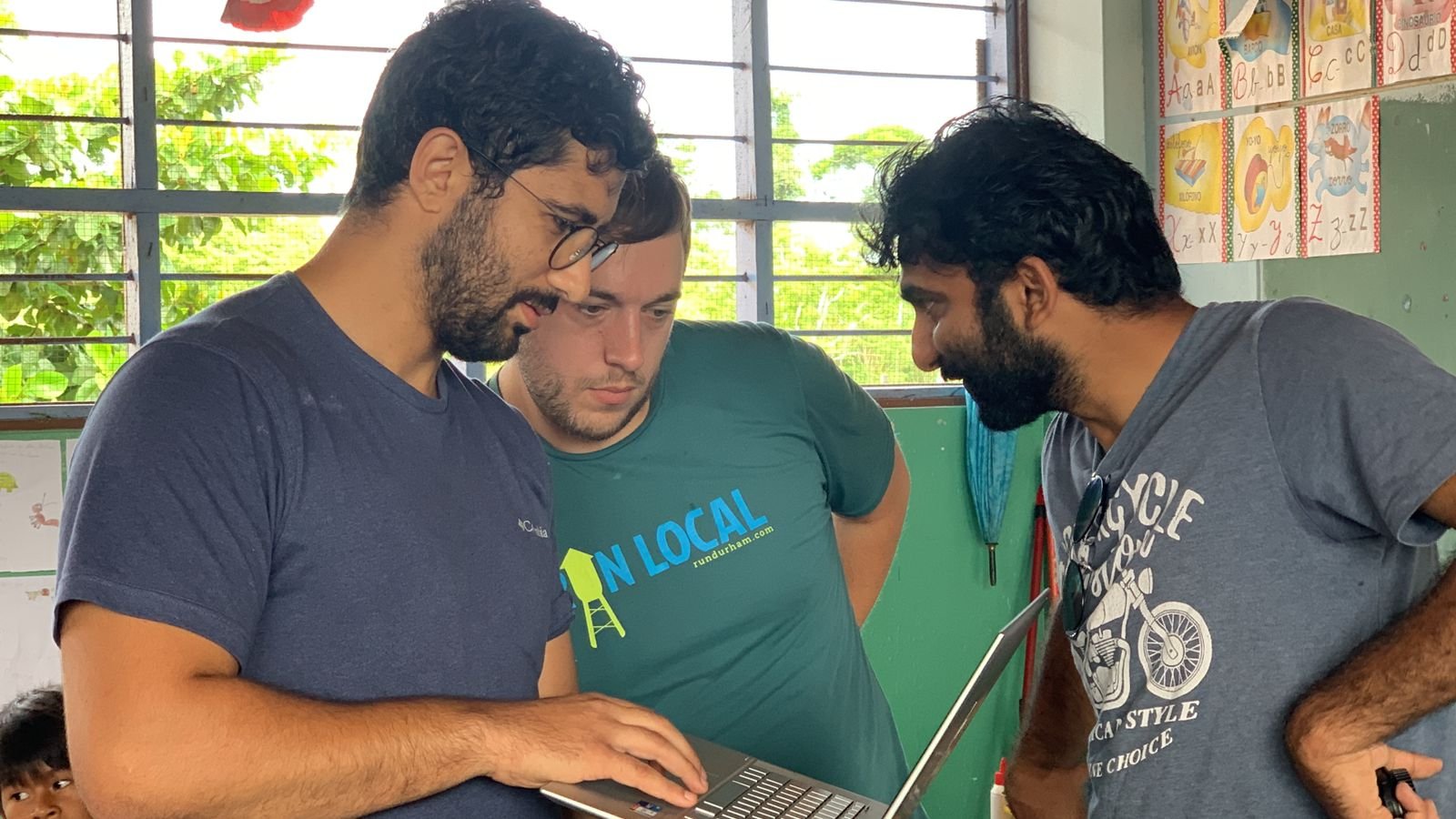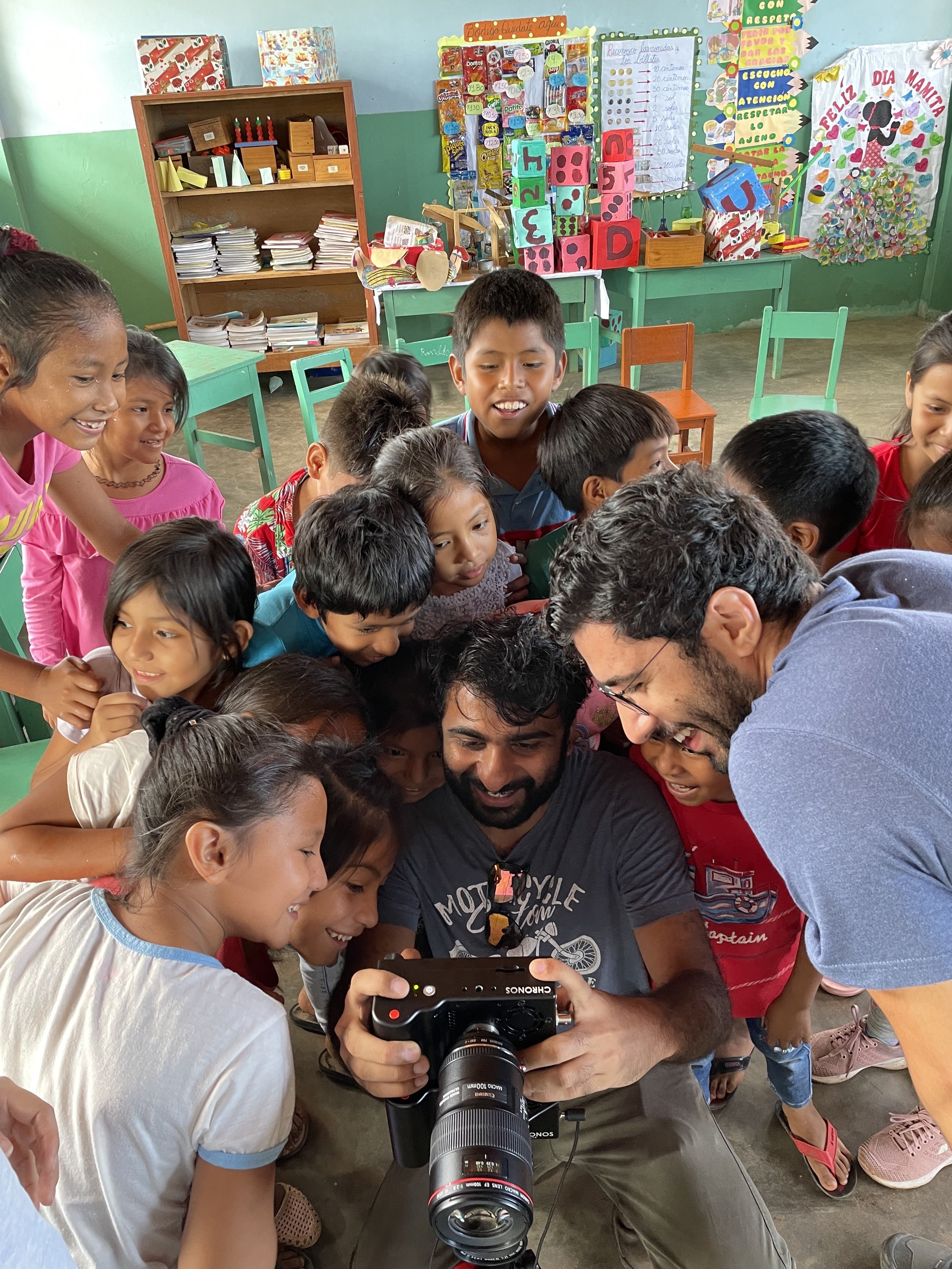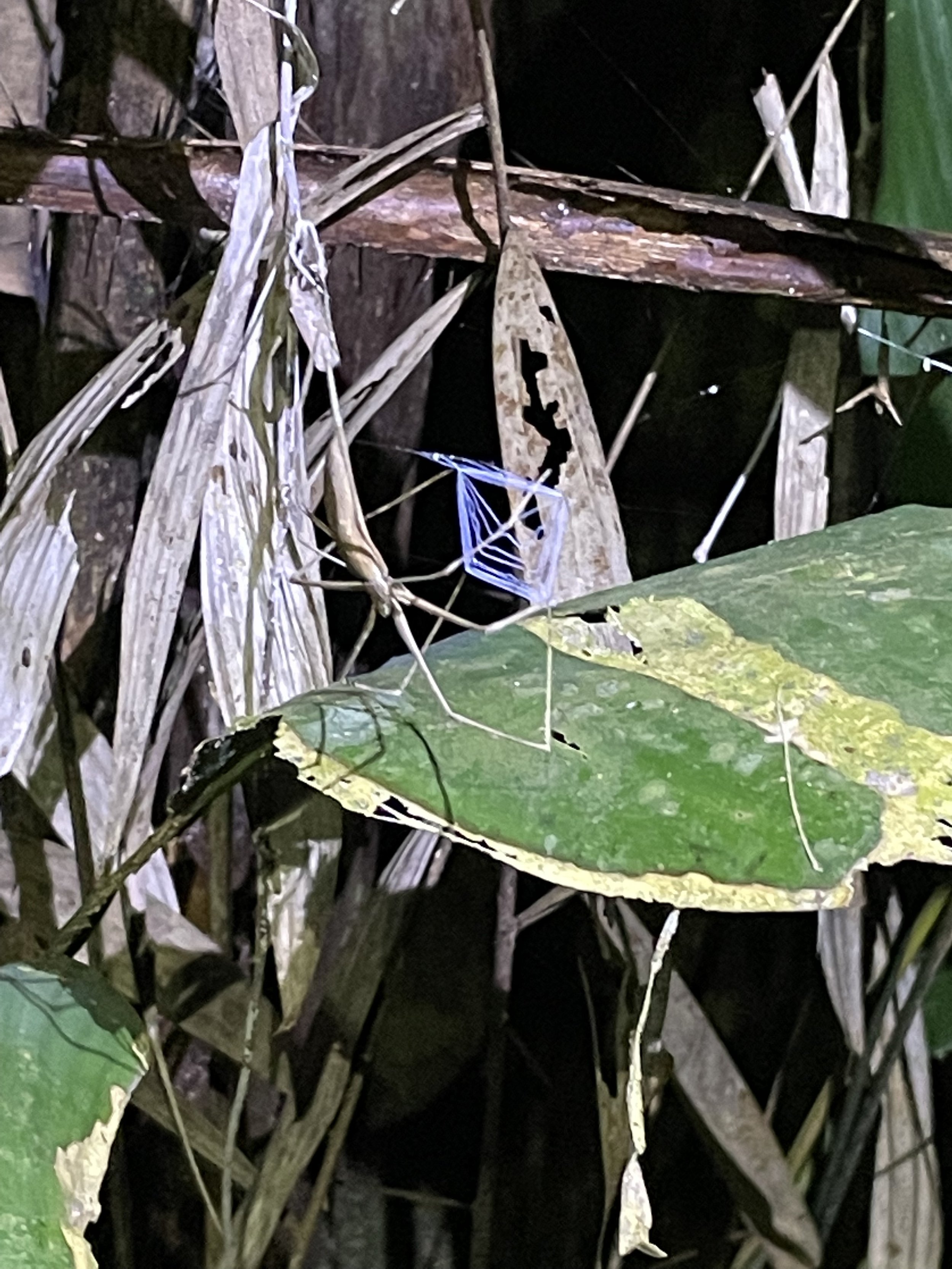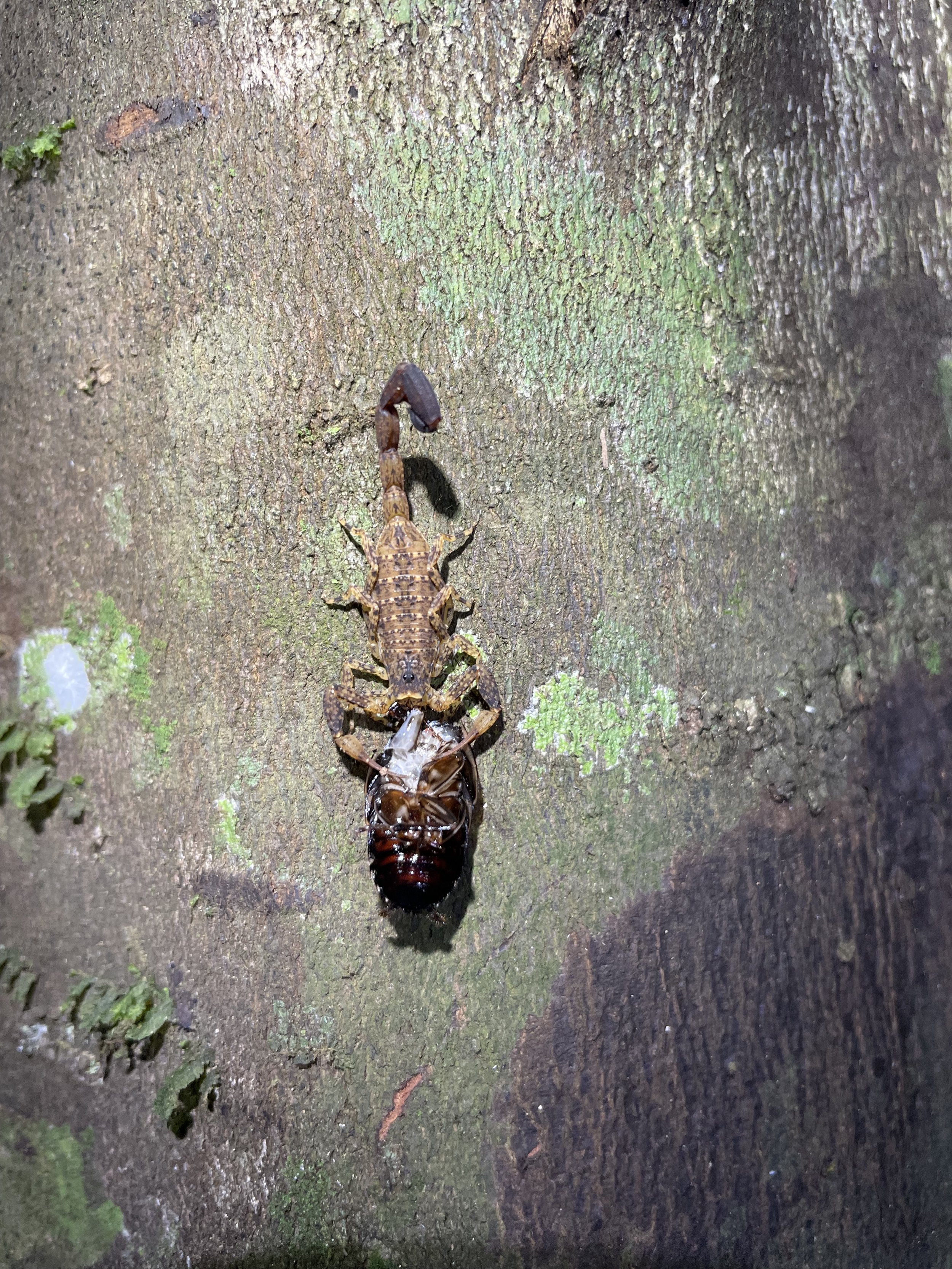Jungle Biomechanics Lab
Come experience the Peruvian Amazon Rainforest
Applications for 2025 are now closed.
An NSF - IRES Funded Program (NSF 2246236)
The 2026 JBL program will not be running due to our lab move to CU Boulder, and will resume in 2027.
Are you passionate about exploring the Amazon rainforest and learning to study the biophysics of organisms in the field? Look no further! We are thrilled to announce the "Jungle Biomechanics Lab," a fully-funded two-week program held in late summer/fall at Finca Las Piedras in the Peruvian Amazon Rainforest. We're seeking highly motivated undergraduate students, graduate students, or postdocs with interests in biology, engineering, physics, ecology, or mathematics.
During the program, you'll have the opportunity to learn field biology, biomechanics, and robotics from leading experts in the field. You will explore the Peruvian Amazon Rainforest at Finca Las Piedras, and model the biomechanics and robophysics of various vertebrate and invertebrate systems. The Amazon is the largest and most biodiverse rainforest on Earth, and you'll study fascinating systems such as ants, spiders, water striders, snakes, frogs, and more. You'll work alongside a diverse group of graduate students, collaborating and learning from each other to make groundbreaking discoveries at the intersection of biology, materials, optics, mathematics, robotics, physics, and engineering.
To apply, submit a one-page project proposal, a letter of reference from your PI, and a CV. This is a once-in-a-lifetime opportunity to explore the Amazon rainforest, learn from experts in the field, and gain valuable skills for your future career!
What is this program?
This is a 2-week field research experience for early career scientists (from undergraduates to postdocs) funded by an NSF IRES grant. Participants will travel with other scientists for two weeks to do field research in the Peruvian Amazon rainforest. With help from a team of experienced field researchers, each participant will develop an independent research project they will conduct during the two-week field trip. During the experience, participants will learn how to conduct field research, collaborate with U.S. and Peruvian scientists and students, and participate in science outreach events with local Peruvian schools.
Deadline to apply: March 15, 2025
Field trip dates: July 25- August 9, 2025
What do I need to apply?
1) Statement of interest - 1 page, include any potential project ideas you have and how this research experience would benefit you as a scientist.
2) Curriculum Vitae - 2 pages maximum.
3) Letter of Reference - From your direct supervisor, if possible.
Note: Non-Georgia Tech students are encouraged to apply but will need to make an account on our application portal.
Unfortunately, due to our funding source we are unable to accept applicants from outside of the United States.
Want to be notified when we release applications and deadlines, along with other news?
Learn more about our field site, Finca Las Piedras, below!
Read some Research articles on work done at Finca Las Piedras!
Frequently Asked Questions
Do I need to pay for anything?
No! This is an all-expense paid program, we will cover flights, housing, and board for your two weeks in Peru!
Is it safe to travel to the Peruvian Amazon rainforest?
Our lab has been going to this field site for several years now and we work with several local organizations in Peru to ensure we operate as safely as possible!
Can we bring guests?
No, just you!
What if we have Dietary or Lodging Restrictions?
We will try our hardest to accommodate any sort of restrictions you may have! Please reach out to us so we can talk with the field station about any accommodations you may need.
Do we need Vaccines?
We recommend participants have the Yellow Fever vaccine, as well as standard vaccines and boosters. Malaria and Dengue are found in Peru; however, they are quite rare at the field station because it is far removed from populated areas.
What kind of equipment will we have access to?
Our lab regularly brings high-speed and high-definition cameras to the field. We also bring small lasers and particles for PIV and GoPros for behavior research. You will also have access to microscopes and 3D printers. We are also open to bringing other instruments if your research requires it! Talk with us about your research ideas and we will find a way to achieve your goals!
What happens leading up to the trip?
We have remote planning meetings to prepare you for the trip as best we can, including talks covering: introduction to the field site and daily life, how to do outreach in Peru, organisms in the Amazon, dangers of the field, planning your research project, and more. During this time, we will also be purchasing and gathering whatever equipment you need for your project in the field, along with organizing flights and permits. We will meet in person for the first time in Atlanta before flying together to Peru.
More Questions about the program?
Please email Dr. Jacob Harrison at jharrison304@gatech.edu
Past Participants
2025
Dixie Baronofsky, undergraduate at Emory
Yuriani Palomino, undergraduate at University of San Diego
Ian Bergerson, Phd candidate at Georgia Tech
James Clinton, Phd candidate at UC Santa Barbara
Deepa Rajan, MD/Phd candidate at UC San Francisco
Danielle Chase, Postdoc at CU Boulder
Melody Young, Postdoc at Duke
Melanie Romina Ramos Requejo, UG at Pontifical Catholic University of Peru
Cindy Lita Pariachi Laura, UG at Pontifical Catholic University of Peru
Abraham Isai Zavaleta Romero, UG at Pontifical Catholic University of Peru
Leonarddo Carlos Lopez Solis, UG at Pontifical Catholic University of Peru
2024
Sophie Hanson, Post-bacc at Duke
Julia Teeple, MS at CSU Fullterton
Calvin Riiska, Phd candidate at Emory
Lin Yan, Phd candidate at UC Berkeley
Tristan Henderson, Phd candidate at Mississippi State University
Tom Marzin, Postdoc at Princeton
Kimberley Bowal, Postdoc at Harvard
Lizbeth Badillo Aguilar, UG at Pontifical Catholic University of Peru
Mael Chaupis Huaman, UG at Pontifical Catholic University of Peru
2023
Ethan Wold, Phd candidate at Georgia Tech
Namyi Ha, Phd candidate at Georgia Tech
Chew Chai, Phd candidate at Stanford
Avaneesh Narla, Post-doc at Stanford
David Stupski, Post-doc at UN Reno
Elizabeth Clark, Post-doc at UC Berkeley
Loribeth Maricielo Bolo, UG at Pontifical Catholic University of Peru
Carolina Paucarhuanca, UG at Pontifical Catholic University of Peru










